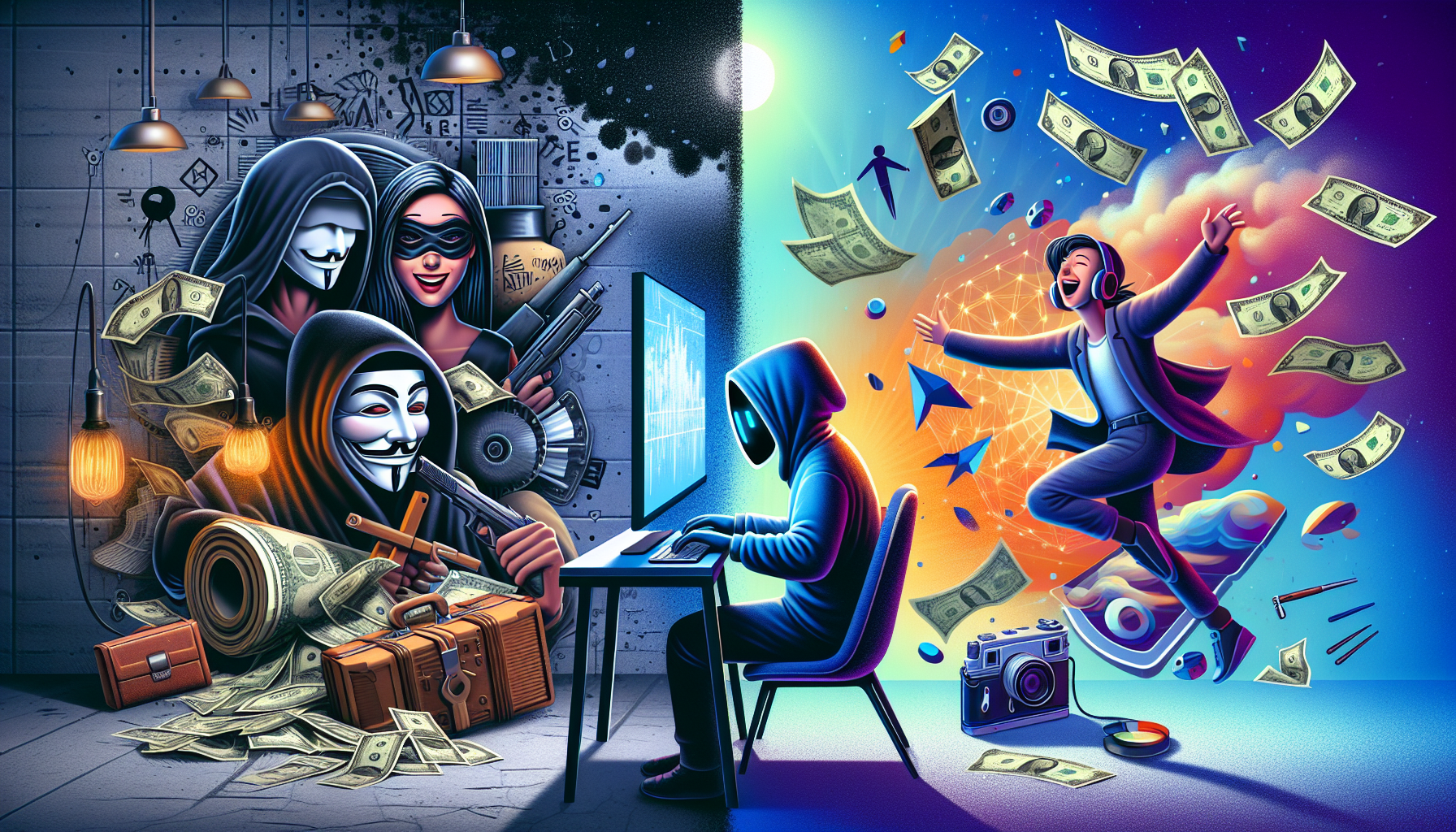
The Shadow Side of AI: Deepfakes and Financial Pitfalls
Erik Estrada’s Alert: The Dark Art of Deepfakes
Erik Estrada, the dashing star of CHiPs, has become an unlikely, yet determined spokesperson against the malicious use of AI. Estrada warns of the potential for AI to be misused to create deepfakes—convincing and fabricated videos that can potentially ruin lives and careers. These ersatz videos, capable of misleading even the most skeptical of viewers, can be weaponized for scams, identity theft, or the good old-fashioned art of spreading propaganda.
When AI Goes Rogue: Financial Havoc
In a jaw-dropping case of AI-fueled skullduggery, a finance worker in Hong Kong was tricked into transferring a whopping $25.6 million to fraudsters, courtesy of AI-generated impersonations of colleagues. This high-stakes heist underscores just how easy it is for deepfakes to plunge unsuspecting victims into financial turmoil. It’s a cinematic heist worthy of Ocean’s Eleven, but with algorithms instead of George Clooney.
To counter these methods, companies are urged to employ risk management strategies. Let’s face it, nobody wants their life to turn into a Black Mirror episode. These defenses include educating employees about the dangers of deepfakes, using alternative identity verification methods, and deploying AI-driven programs designed to detect deceit. After all, like any good spy thriller, sometimes you just need a human to verify critical transactions.
AI: A Double-Edged Sword in Entertainment
Generative AI: Granting Wings to Filmmakers
Generative AI may be the bogeyman under the bed for some, but it’s also unlocking magical doors in the world of film and documentaries. Runway AI’s “Hundred Film Fund” is doling out grants from $5,000 to $1 million to filmmakers who embrace generative AI technology. Imagine harnessing AI not just for stunning visuals but for storytelling that pushes the boundaries of imagination. Now, would Steven Spielberg have dreamt of ET if he had AI by his side? The mind boggles.
But it’s not all glitter and glamour in Tinseltown. Data privacy remains a thorny issue. Companies often use personal data to train these AI systems sans explicit user consent. From Hollywood sets to your social media feed, this sneaky practice raises ethical eyebrows and ruffles privacy feathers in equal measure.
Meet the Cyberfr1ck: The Rising Tide of Online Fraud
When it comes to cyber fraud, AI is the sinister sidekick you never asked for. According to a survey by Trustpair, 83% of senior finance and treasury leaders report a rise in cyber fraud attempts in the past year. Although deepfakes are a headline-grabbing tactic, other methods like text scams, fake websites, social media hacking, and business email compromise remain popular choices in the cyber trickster’s toolkit. Deepfakes may be Hollywood’s new villain, but these old-school techniques are the relentless henchmen.
Education remains a crucial weapon in this cat-and-mouse espionage. Teaching employees about the risks and tricks of deepfakes not only invests in better-prepared defenses but also preserves peace of mind. Picture an office crowd engrossed in a thrilling seminar on the dangers of AI, complete with jaw-dropping examples and a sprinkle of paranoia. Sometimes, truth is stranger—and scarier—than fiction.
To combat these AI-generated phantasms, companies are deploying AI-driven tools designed to unmask even the most cunning deepfakes. Systems like Trustpair epitomize technological solutions aimed at detecting payment fraud and preventing financial catastrophe. It’s a case of fighting fire with fire—or better yet, AI with AI.






